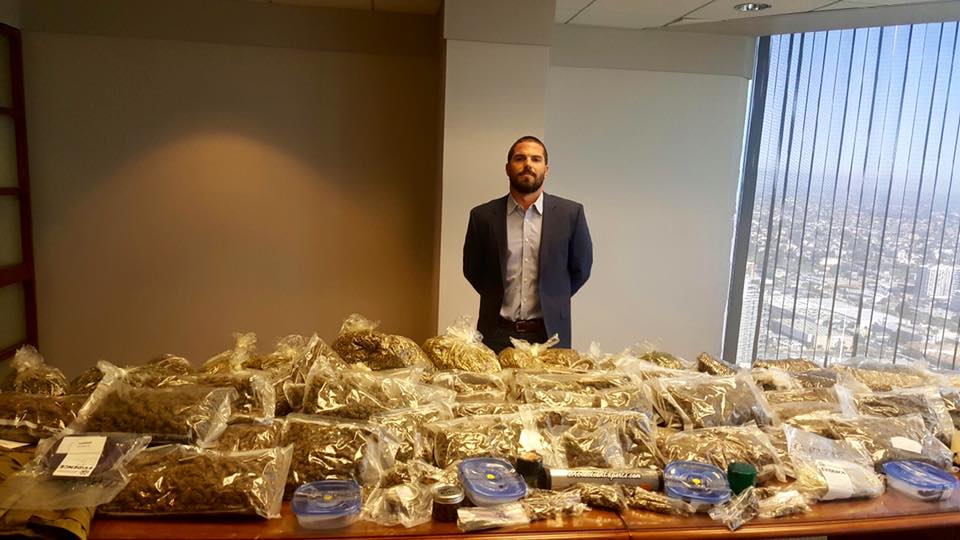
When a person is arrested, it is not uncommon for them to have personal property seized by the police. This property may be used as evidence, or may be seized for the purpose of asset forfeiture. Asset forfeiture is a process whereby police seize items that are considered instrumentalities of a crime. This could be money earned from an unlawful source, money intended for an unlawful use, or other property that was used in, or earned from, the commission of a crime like Cryptocurrency. When police seize items for asset forfeiture, they are intending on initiating a process to permanently deprive you of your property. No matter what the purpose of the seizure is, if you are cleared of the charges, you generally have a right to the return of your property.
Lawyer for Asset Forfeiture in San Diego, CA
Michael E. Cindrich has been successful in recovering several hundred pounds of cannabis, hundreds of thousands of dollars, cultivation equipment, vehicles, firearms, and other items that were wrongfully seized by law enforcement. In some cases our clients were arrested, property was seized, but charges were never filed. In other cases charges were filed, but were later dismissed by the prosecuting agency. In a handful of cases Michael Cindrich was forced to proceed to jury trials where he won “Not Guilty” verdicts which allowed our clients to seek the return of their property.
It is not uncommon for law enforcement to oppose our request to return wrongfully confiscated property, especially cannabis. When this happens, our office is forced to draft, file, and argue motions for return of property. The best authority for the return of cannabis in California is The City of Garden Grove vs. The Superior Court of Orange County, which confirms that California agencies have a duty to return cannabis that was lawfully possessed.
The Law Offices of Michael E. Cindrich serve clients whose assets have been forfeited in San Diego County, including the cities of Chula Vista, Oceanside, Escondido, Carlsbad, El Cajon, Vista, San Marcos, Encinitas, National City and La Mesa, and San Diego proper.
Contact Michael Cindrich today for a free consultation at (619) 262-2500.
Overview of Asset Forfeiture Laws in California and the United States
- Returned Property
- Examples of Property Subject to Asset Forfeiture
- Do I Need to Be Convicted Before My Property is Forfeited?
- Police Procedures for Asset Forfeiture
- Asset Forfeiture for Organized Crime
- Additional Resources
- Hire an Attorney for Asset Forfeiture in San Diego County, CA
Returned Property
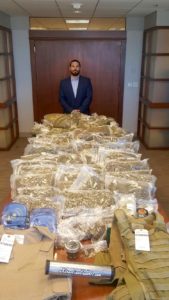
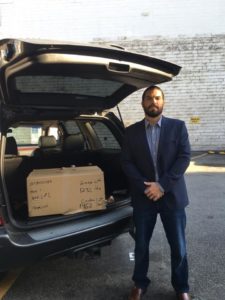
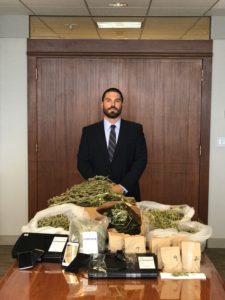
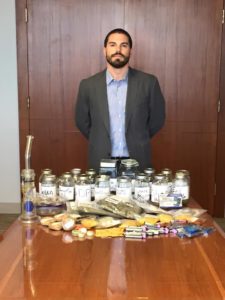
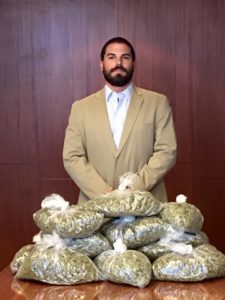
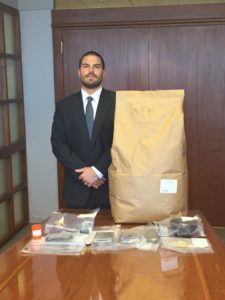
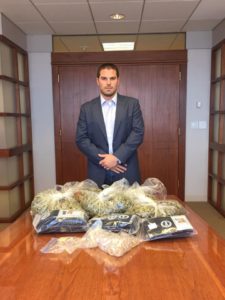
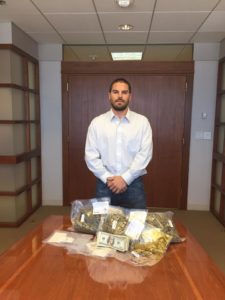
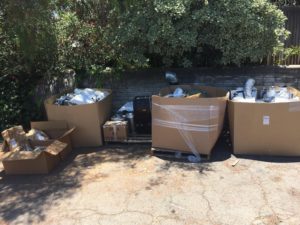
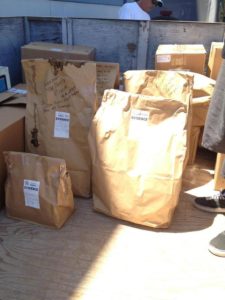
Examples of Property Subject to Asset Forfeiture
Most asset forfeiture happens under California’s drug laws or its laws against organized crime. Chapter 8 of California’s Uniform Controlled Substances Act outlines a detailed, intricate system for the seizure and forfeiture of property in a drug case.
Seizures made under these laws are by far the most common type of asset forfeiture proceeding in California.
Almost any kind of property can be subject to forfeiture, including:
- Cash / U.S. Currency – read more about cash seizures at major aiports
- Cryptocurrency
- Bank accounts
- Illegal drugs themselves, or their precursors
- Equipment used for drug delivery or manufacturing, such as lab equipment or scales
- Property interest in any vehicle used for possession, manufacture, or sale of drugs
- Real Estate, land and or buildings allegedly used for production, sale, storage, or use of illegal drugs
- Money or other financial instruments used or intended to be used to purchase drugs, or money gained through drug sales
California law provides only a few narrow exceptions to this list. Importantly, police cannot take your home if it is used as a family residence, and if a piece of real estate is co-owned, police cannot seize it if one or more parties did not know about the illegal activity that was occurring there.
Do I Need to Be Convicted Before My Property is Forfeited?
As asset forfeiture laws go, California’s guidelines are relatively favorable to defendants. As a general rule, the defendant must be convicted of an underlying crime before permanently losing their property. Although civil asset forfeiture rules provide several exceptions to this general rule.
Additionally, the government can still take your property (the “seizure”) and wait to sell it (the actual “forfeiture”) until after you are ultimately convicted of a crime.
Under California’s drug laws, the government must secure a conviction before selling any of the following types of property:
- Vehicles including boats and planes
- Money under $40,000
- Real estate (buildings or land)
Money or financial instruments worth more than $40,000 can be forfeited without a conviction if police can connect it to a crime in a court hearing by “clear and convincing evidence.”
The limitations in state court can be avoided if federal agents seize the property.
Police Procedures for Asset Forfeiture
It is important to remember the distinction between seizure – the initial taking – and forfeiture – the permanent transfer of ownership rights to the government. If you are arrested, law enforcement can seize assets right away but will have to follow certain procedures before they can actually sell it. This process works the same for money, drugs and cryptocurrency.
Under California’s drug laws, there are essentially three kinds of forfeiture procedures. In order of least to most steps that the police are required to follow, they are “summary forfeiture”, “administrative forfeiture”, and “judicial forfeiture”.
Many illegal drugs are subject to “summary forfeiture”, which means they can be permanently taken immediately without a hearing. Medical marijuana that is possessed legally must be returned, however.
Administrative forfeiture applies to personal property (everything except real estate) worth $25,000 or less. Police are required to give public notice in a newspaper and direct notice to anyone with an ownership interest in the property. The notice must contain:
- A description of the property
- The appraised value
- The date and location of seizure
- The legal grounds for the seizure (what law has allegedly been broken)
- Deadlines and instructions for contesting the seizure
After receiving notice, you have 30 days to file a Claim Opposing Forfeiture, available here. If no claim contesting the forfeiture is filed by the deadline, a “declaration of forfeiture” will be issued and the police can then sell the property and keep the proceeds.
If a claim is filed on time, a process called “judicial forfeiture” is triggered and a court hearing will be required to forfeit the property.
Judicial forfeiture is required when a forfeiture is contested by filing a claim opposing it, or if the property is worth more than $25,000. The notice requirements and deadlines for this process are the same as for administrative forfeiture. A civil trial must then take place before the property is forfeited.
At trial, the prosecutor must prove that the property was used to commit a crime or was purchased with money gained illegally, and that the owners of the property knew that the criminal activity was happening and allowed it to occur.
Asset Forfeiture for Organized Crime
Besides drug laws, the other most common avenue for property to be forfeited is through the California Control of Profits of Organized Crime Act., found in Chapter 9, Section 186 of the Penal Code. A conviction is required for a forfeiture under these laws.
Prosecutors can seize the proceeds (primarily money, but also anything else of value) from organized crime, as well as “any property interest acquired through a pattern of criminal profiteering activity.”
A “pattern” means two or more connected criminal acts that are similar, and the crimes must be done for profit. Many kinds of crimes qualify, including receiving stolen property, bribery, extortion, fraud, human trafficking, money laundering, and pimping.
The procedures are similar to those for drug laws and include notice and a 30-day period to contest. If contested, it will be up to a jury to decide whether the property should be forfeited.
Additional Resources
“Above the Law: An Investigation of Civil Asset Forfeiture in California”, Drug Policy Alliance – An article detailing abuses of civil asset forfeiture in California. It includes a breakdown of different police departments and the revenue they have received through “equitable sharing” with federal asset forfeiture programs. The article also provides statistics showing that asset forfeiture has a disproportionate impact on low-income people and people of color.
2024 Asset Forfeiture Annual Report, State of California Department of Justice – This report gives information about all asset forfeiture in the state for the calendar year. Statistics about the value of assets forfeited can be found here. Information about where the proceeds of asset sales went is also included.
Hire an Asset Forfeiture Lawyer in San Diego, CA
Attorney Michael Cindrich has decades of experience in criminal court. He has protected clients accused of every manner of crime, and is ready to build your case against Asset Forfeiture. The Law Offices of Michael E. Cindrich serve San Diego County, including the cities of Chula Vista, Oceanside, Escondido, Carlsbad, El Cajon and San Diego Proper.
Contact the Law Offices of Michael E. Cindrich today for a free, confidential consultation at (619) 262-2500.